Search
Remove Ads
Advertisement
Summary 
Loading AI-generated summary based on World History Encyclopedia articles ...
Search Results
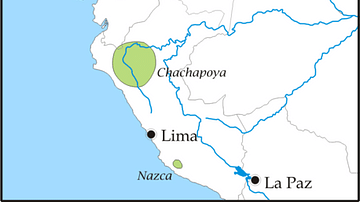
Image
Pre-Columbian Tribes of Northern South America
A map highlighting the areas of settlement of various pre-Columbian civilizations in the northern areas of South America such as the Muisca, Tairona, and Quimbaya

Image
Spanish Conquest & Exploration in South America in the 16th Century
A map illustrating Spain’s drive to expand its empire in South America following the occupation of the larger Caribbean islands by 1512. The promise of gold drove the Spaniards far and wide across the continent, from the Isthmus of Panama...
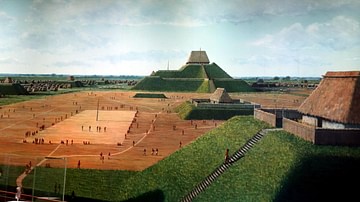
Definition
Pre-Colonial North America
Pre-Colonial North America (also known as Pre-Columbian, Prehistoric, and Precontact) is the period between the migration of the Paleo-Indians to the region between 40,000-14,000 years ago and contact between indigenous tribes and European...
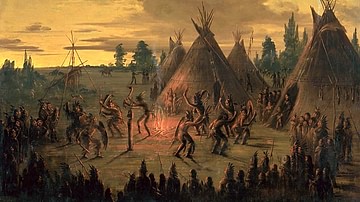
Definition
Native Peoples of North America
The Native Peoples of North America (also known as American Indians, Native Americans, Indigenous Americans, and First Americans) are the original inhabitants of North America believed to have migrated into the region between 40,000-14,000...

Article
The Norse in America: Fact and Fiction
The idea that it was the Norse who discovered America first emerged in the late 18th century, long before there was any public awareness of the sagas on which such claims were based. In the course of the 19th century, evidence for a Norse...

Article
Slavery in Colonial America
Slavery in Colonial America, defined as white English settlers enslaving Africans, began in 1640 in the Jamestown Colony of Virginia but had already been embraced as policy prior to that date with the enslavement and deportation of Native...
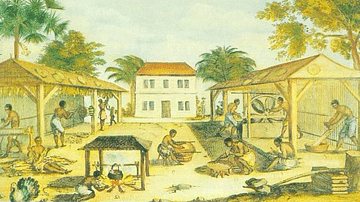
Article
African Slave Life in Colonial British America
African slave life in Colonial British America was far worse than slavery practiced in the Americas prior to the arrival of Europeans. The indigenous tribes took people as slaves in raids, enslaved those convicted of crimes, and traded slaves...
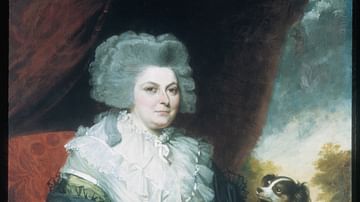
Article
Pets in Colonial America
Pets in Colonial America were kept by the colonists for the same reasons they were in Europe: for companionship and, in the case of dogs, for protection, hunting, and herding. Cats controlled vermin in homes and barns until the 18th century...
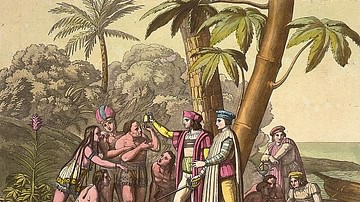
Article
Native American Enslavement in Colonial America
Slavery was practiced by the Native Americans before any Europeans arrived in the region. People of one tribe could be taken by another for a variety of reasons but, whatever the reason, it was understood that the enslaved had done something...
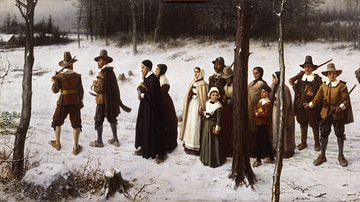
Article
Religion in Colonial America
Religion in Colonial America was dominated by Christianity although Judaism was practiced in small communities after 1654. Christian denominations included Anglicans, Baptists, Catholics, Congregationalists, German Pietists, Lutherans, Methodists...